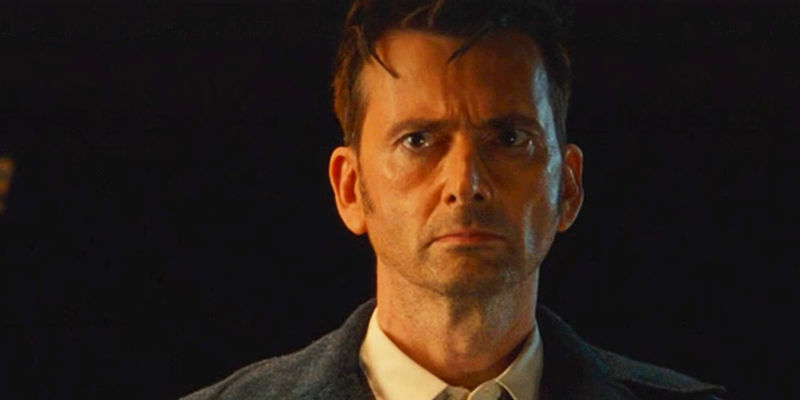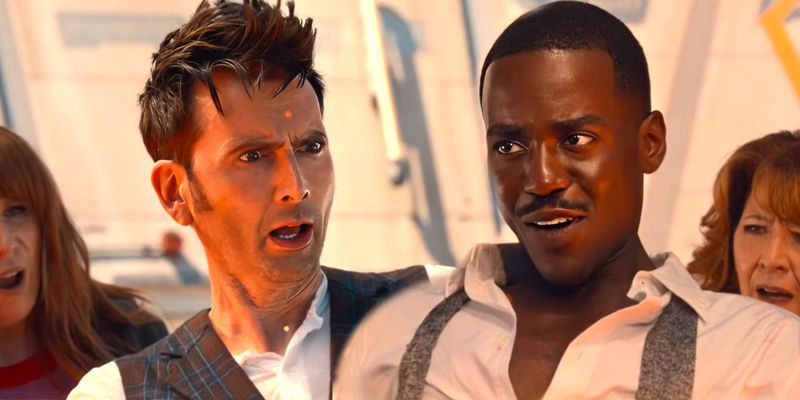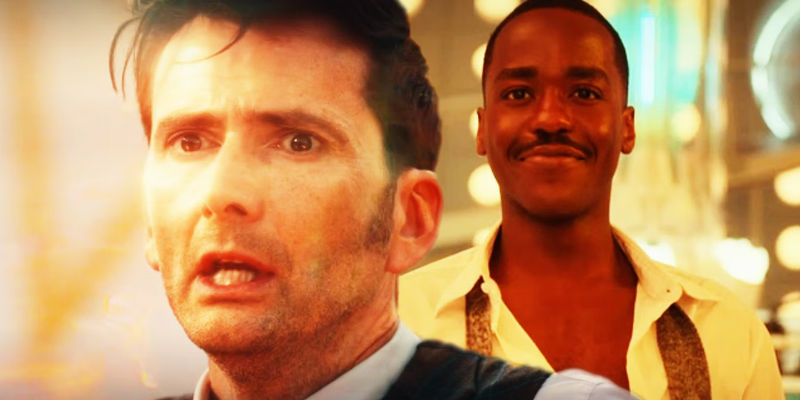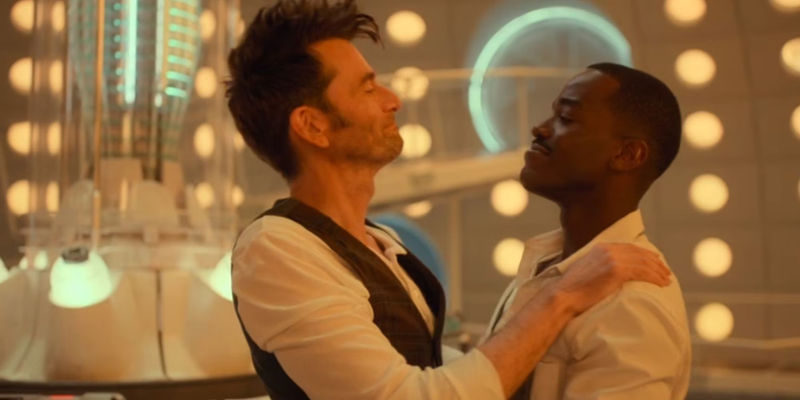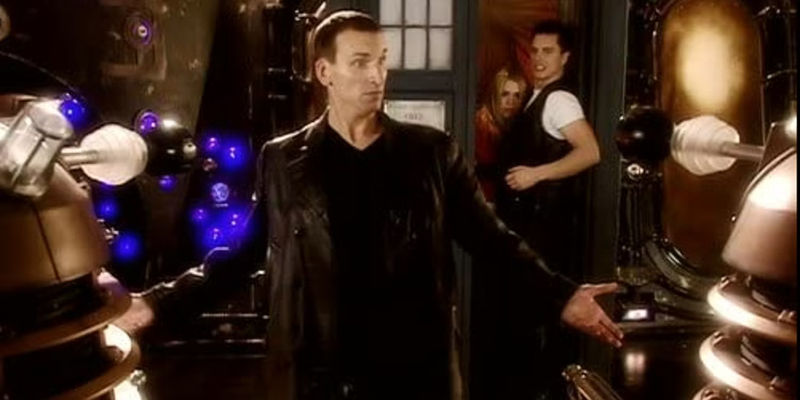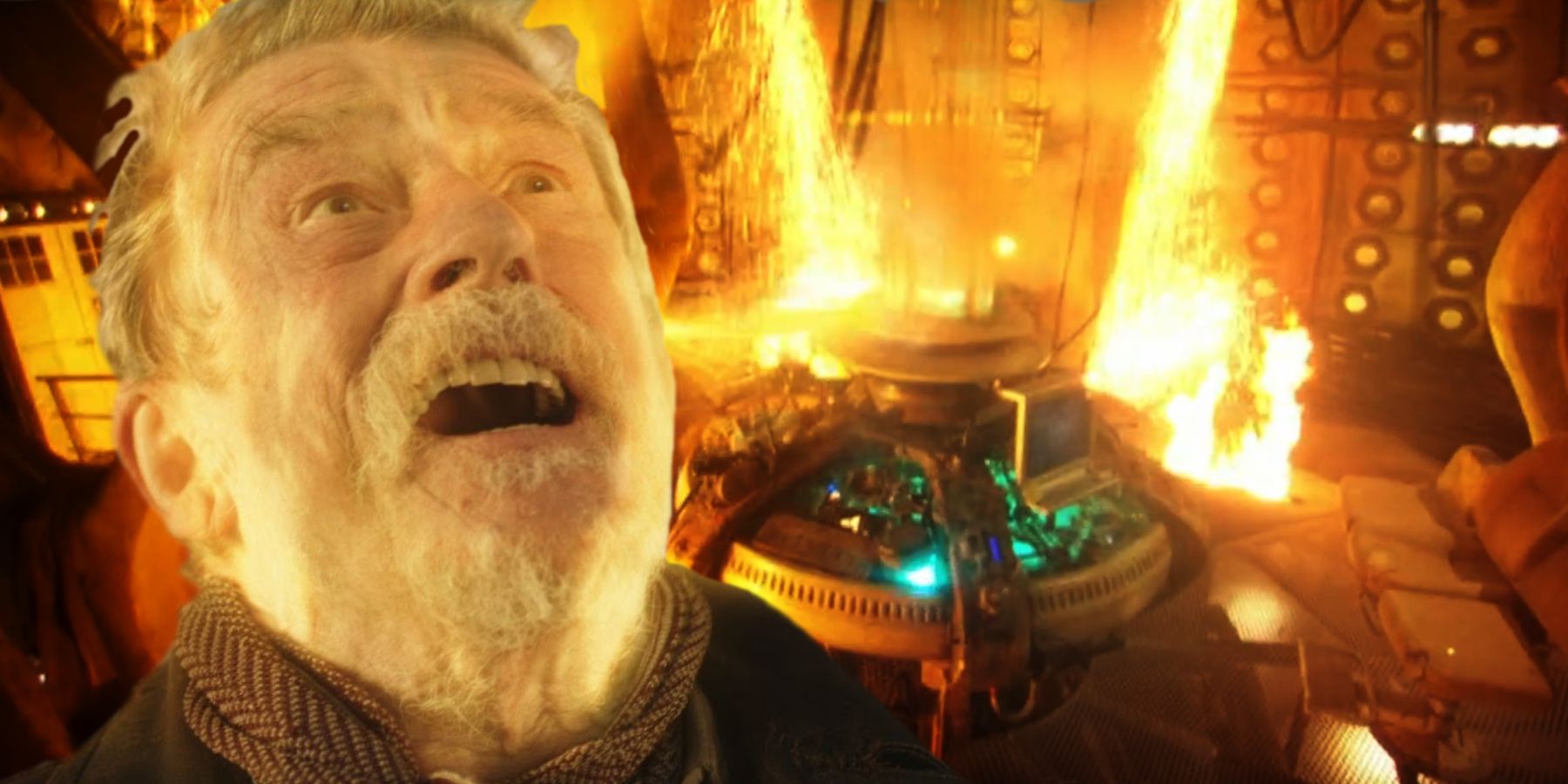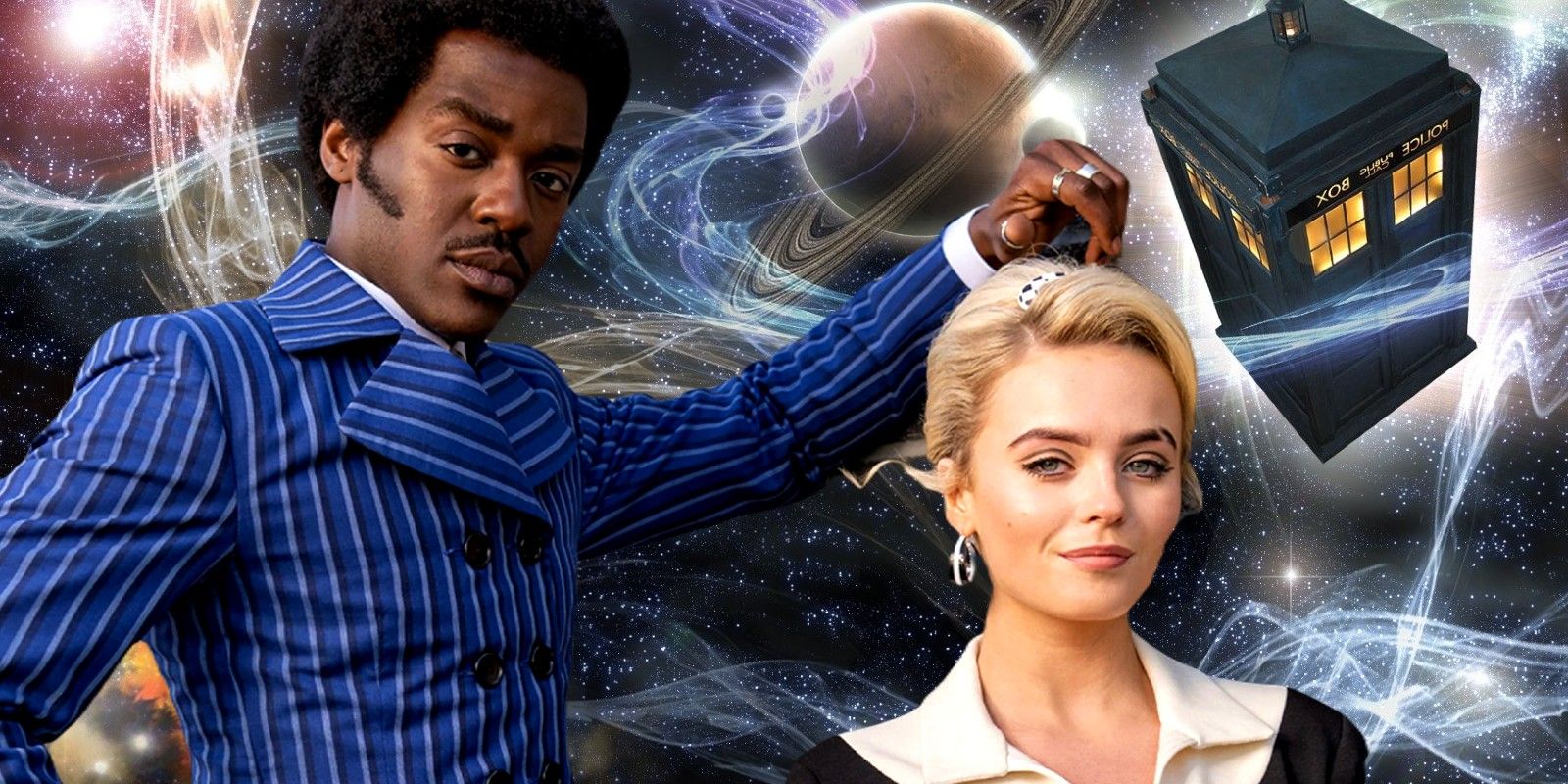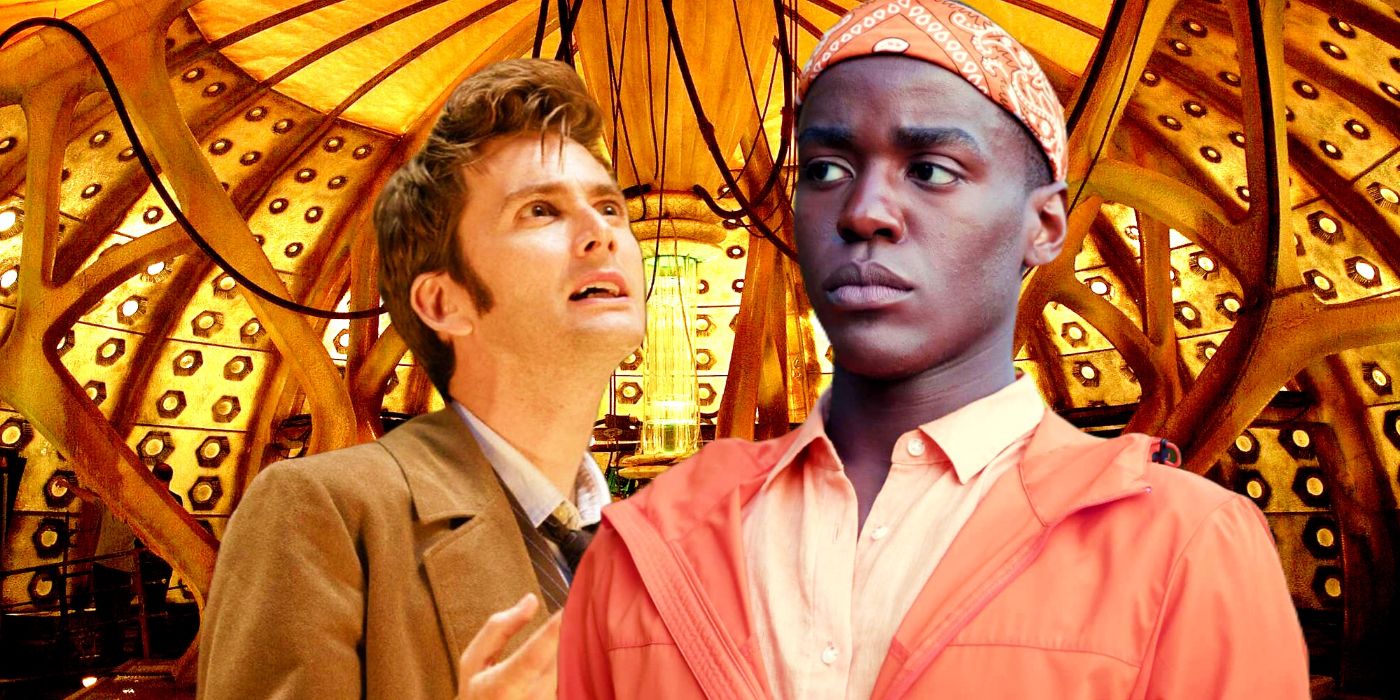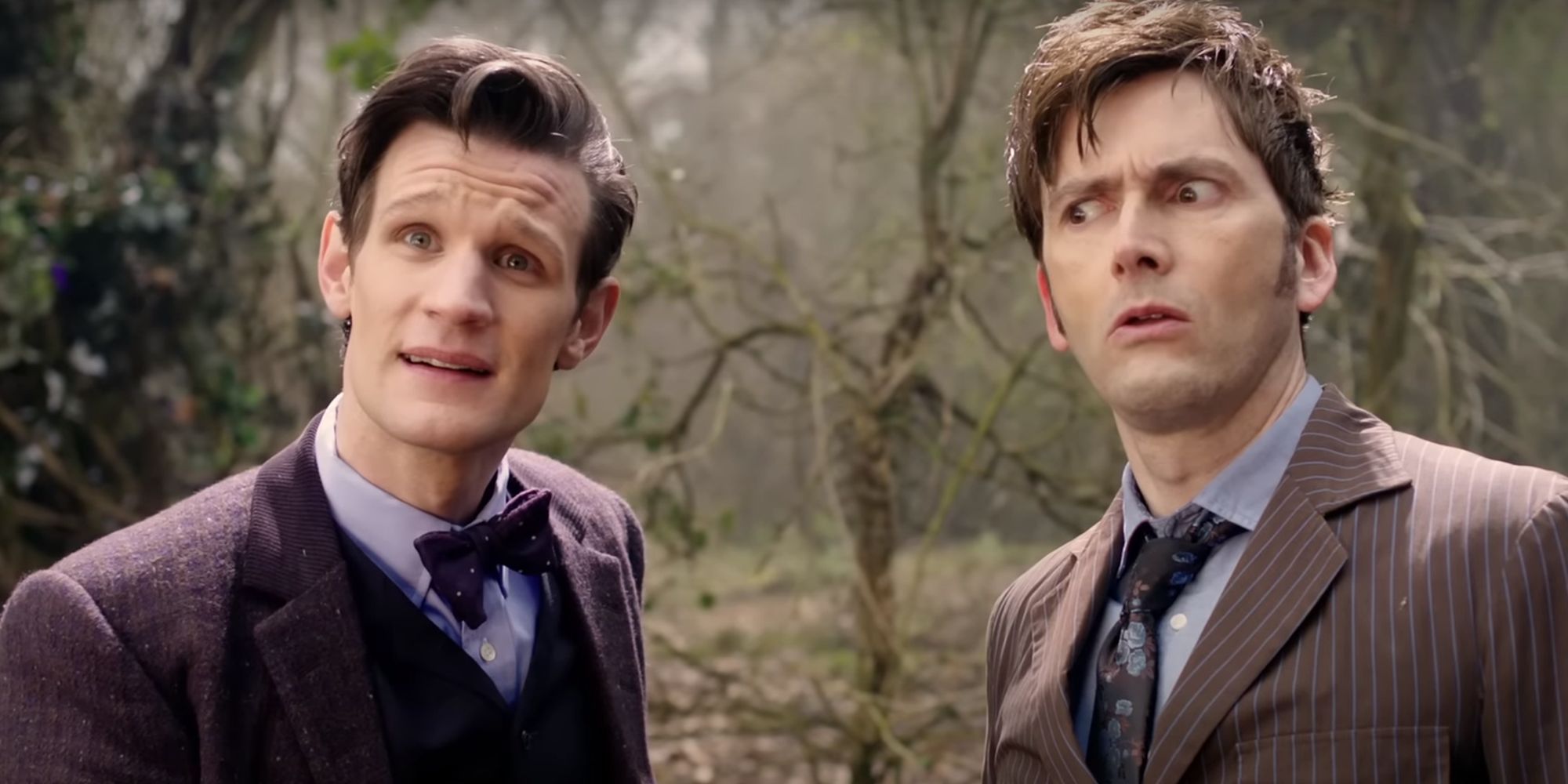
The Mysterious Regeneration of the Fourteenth Doctor in Doctor Who

The return of David Tennant as the Fourteenth Doctor in Doctor Who has sparked intrigue and speculation about the character's ability to regenerate. The bi-generation twist and the introduction of the Fifteenth Doctor have added a new layer of mystery to the regeneration process. This article explores the implications of the Fourteenth Doctor's uncertain regeneration and the potential impact on the future of the show.
The Enigma of Fourteen's Regeneration
David Tennant's return to Doctor Who, this time as the Fourteenth Doctor, has raised questions regarding his character's ability to continue to regenerate. Both regenerations that Fourteen has been involved with have had a unique edge, so the biological process may have run into issues.
David Tennant gives an angry look as the Fourteenth Doctor on Doctor Who
The Fourteenth Doctor is the first version of the Time Lord whose ability to regenerate has been unclear. Doctor Who's 60th-anniversary specials ending revealed that the Toymaker meddled with the Doctor's history, and so, what was once understood is now a mystery once more. Regeneration is a huge part of Doctor Who, and it's one of the biggest reasons the show has enjoyed such a lengthy run. However, the famous story device could be undergoing yet another change ahead of Doctor Who season 14.
Doctor Who 60th-Anniversary Catherine Tate and David Tennant as Donna Noble and the Fourteenth Doctor standing outside of the TARDIS
Ncuti Gatwa's introduction to Doctor Who means the rules surrounding regeneration have been re-written. When the Fourteenth Doctor tries to regenerate in the wake of the Toymaker's attack, the process happens in a brand-new way. Instead of changing his face, the Doctor splits into two separate Time Lords, one of whom is brand new: Gatwa as the Fifteenth Doctor. Fifteen declares that the process of bi-generation is supposed to be nothing more than a myth, and therefore, he knows as little about the development as his confused predecessor.
Doctor Who The Giggle David Tennant and Ncuti Gatwa as the Fourteenth and Fifteenth Doctors
It's possible that the Fifteenth Doctor has now taken the ability to regenerate from Fourteen, removing the power from him rather than both of them being capable of the feat. This would allow Gatwa's Doctor to continue to regenerate in a way that is more familiar, progressing through new faces that they don't recognize. Such a development would be in line with the show's traditions, always looking forward rather than living too obsessively in the past. Of course, there is always the possibility that bi-generation is now the norm for the Doctor, and each Doctor becomes two as they attempt to recover from extreme physical trauma.
David Tennant as the Fourteenth Doctor sitting and looking satisfied in Doctor Who special episode The Giggle.
This could, however, mean that the ability to regenerate is now exclusive to the Fifteenth Doctor, with Fourteen being left unable to regenerate. However, if this is the case, the writers would be creating a similar storyline to one that's already happened in Doctor Who. The season 4 finale revealed a part-human version of the Tenth Doctor, also played by Tennant, who lacked the ability to regenerate. Known as the Meta-Crisis Doctor, the variant in season 4 would be too similar to Fourteen if both lack the ability to regenerate. While it would be a heartwarming end for Fourteen to grow old with Donna, it would lack originality.
David Tennant regenerating into Ncuti Gatwa
The Unpredictable Nature of Regeneration
As shown in 'The Giggle,' there is no way to foresee what the Doctor will look like each time they regenerate. If Fourteen has retained his ability to regenerate, there is no guarantee that he will eventually become Gatwa. There are also various references to Fifteen originating from somewhere in Fourteen's future, so the possibility remains that there are still Doctors that will come between the two versions shown in 'The Giggle.'
A blended image of David Tennant's Fourteenth Doctor and Jodie Whittaker's Fifteenth Doctor in Doctor Who
Should Tennant's Fourteenth Doctor regenerate, it's more likely he will gain an unfamiliar face or will revert to another previous one. If the Doctor has reclaimed one face already, there's no reason they can't continue to revert, revisiting past faces such as Matt Smith's Eleven or even Christopher Eccleston's Ninth Doctor.
David Tennant and Ncuti Gatwa's Doctors undergo bi-regeneration in Doctor Who's "The Giggle"
Russell T Davies, who has recently returned for his second stint as Doctor Who's showrunner, has recently given his theory during the commentary of 'The Giggle' that the bi-generation didn't just occur to the Fourteenth Doctor. At the same instant, every version of the Doctor bi-generated, resurrecting the Doctors whose time was brought to a close by traditional regeneration. Not only does this create more opportunities for previous actors to return to the role, but bi-generation suggests the existence of a Doctor Who multiverse.
The 14th and 15th Doctors hug in Doctor Who episode "The Giggle"
The Impact of Bi-Generation on the Future of Doctor Who
Despite already being functionally immortal, the bi-generation twist means the Doctor is now more omnipresent than ever. For as many Doctors as there already were prior to the events of 'The Giggle,' the introduction of bi-generation means there are now at least twice as many. While it could be argued that the ability to endlessly replace the Doctor lowers the stakes, it also gives the show the possibility to continue with no end in sight.
David Tennant and Ncuti Gatwa's Doctor's embrace while Bonnie Langford's Mel claps
The structure of the show has not changed too greatly, with season 14 set to continue following only one version of the Time Lord, as Ncuti Gatwa steps in to lead the new era of the show. There may now be a greater chance of multi-Doctor stories, but this was always something that was a possibility. With the return of previous Doctors often highly anticipated by Doctor Who fans, the series may be looking to capitalize on that nostalgia. Additionally, the dynamics between various Doctors makes a fresh and compelling addition to the show.
Peter Capaldi walking on Skaros battlefield in Doctor Who
The Doctor Who 60th anniversary specials are streaming now on Disney+.
Christopher Eccleston as Ninth Doctor looking cocky and confronting the Daleks in Doctor Who
